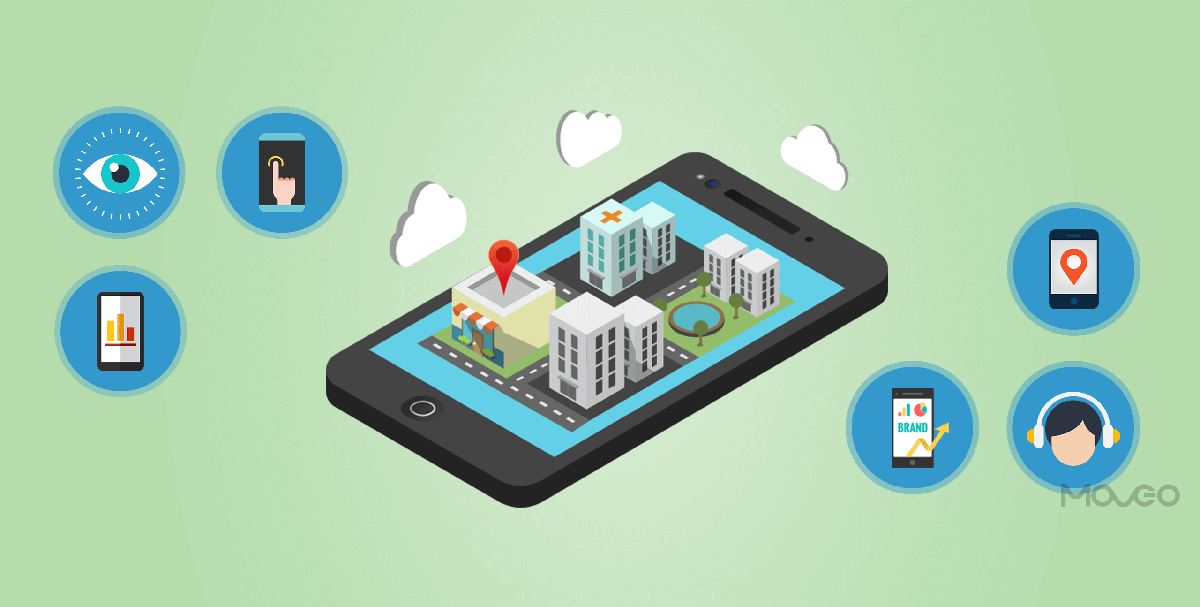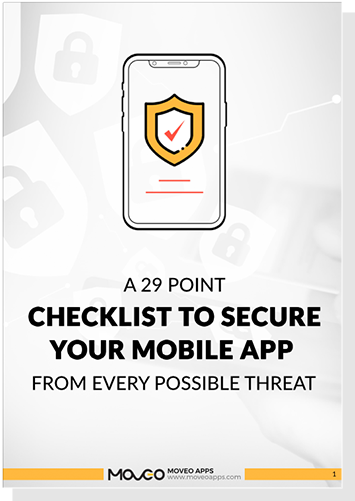If you’re still wondering why your business needs a mobile app, consider this – 68% people check their phones within 15 minutes of waking up, according to a study by Google Micro-Moments. So this is probably the first thing they are doing every morning. Wouldn’t it be great for your business to be a part of this morning ritual? By just being there, your app becomes a part of your customer’s life and can potentially drive higher engagement, sales, and brand loyalty that the most expensive ad campaign.
Let’s take a good look at the most pressing reasons why you need to build and launch a mobile app for your business today.
1. Apps Give You Maximum Visibility
That’s right. A tiny icon on your customer’s device will give your business more visibility than a giant billboard and a television ad. After all, US consumers use their mobile devices for up to five hours a day, says a report from Flurry Mobile, and yes, this figure officially bumps TV as America’s first choice of screen.
The implication is as clear as a summer day. Mobile is the first medium businesses should be targeting if gaining visibility feels desirable. With a mobile app, you get to be at the customers’ fingertips all day long and that gives you a clear edge over a competitor who is only accessible in a Web browser and needs customers to type a Web address and log in. You also have a definitive advantage over businesses that rely on TV, print and media ads for visibility.
2. Apps Drive More Engagement
Native apps take customer engagement to a whole other level by essentially making mobile devices the primary medium of communication. Consumers have a smartphone on them almost all day long, regardless of where they go, even the restroom. They tend to check their phones for notifications and messages all the time.
This kind of omnipresence of the mobile allows you to strategically engage your customers on a very personal level. You can send out push notifications at strategic times of the day/week. For instance, food delivery apps can send out scrumptious offers and personalized deals right around lunch and dinner times. Travel-based apps like hotels and cab booking apps can create customized offers around long weekends.
What’s even more remarkable is the level of customization apps can offer. A native app can access the customer’s location and can send offers specific to that location. This is because customers couldn’t care less about a half-price sale ten miles away, but a 10% off on their nearest Starbucks? That is hard to resist.
3. Apps Gather Real-Time Actionable Data
Native apps make high-level analytics possible by leveraging end-user specific data that can be gathered in the most non-invasive manner, keeping consumers’ privacy intact. Heat maps, user flows, drop-off points, cart abandonments, and the time spent in-app are just a few of the numerous means through which apps can monitor user activity and provide valuable insights into just what your customers like and what is ticking them off. Having access to such highly-nuanced data allows you to constantly update and carefully strategize your value proposition. Knowing what drives user engagement lets you give your customers exactly what they want consistently.
4. Apps Work When Nothing Else Does
Even though mobile usage has grown rapidly, mobile networks can still be flimsy and weak in certain parts of town. When the mobile signal is weak, the Web browsing experience can be hampered.
Having a native app allows you to maintain a bank of offline content that can keep your customers engaged and entertained when they don’t have an internet connection. For instance, Google Maps saves locations frequently traversed by users and can help them navigate to those places even when they’re offline. Not only does this make the app more useful, but also makes using it an absolute delight. The popularity of Google Maps speaks for itself.

To-do lists, grocery lists, notes and reminders can all be made available offline adding immense functionality to your app and gaining brownie points in customer satisfaction.
5. Apps Drive Increased Brand Loyalty
Of course, you know about the importance of brand loyalty, but if you need more sizable proof, here are some quick numbers we crunched just for you –
– A 5% increase in customer retention leads to a 25% to 95% surge in profits. (Bain and Company)
– New customers cost 20 to 40% more to gain than old customers are to retain. (Harvard Business School)
– The likelihood of converting an existing customer into a long-term customer is 60 to 70%. The likelihood of converting a prospect into a customer is 5 to 20%. (com)
– Repeat buyers spend 33% more than new ones (CMO.com)
Few strategies can drive brand loyalty like native apps do. It has already been proven that online loyalty programs are more effective than brick-and-mortar loyalty programs (Harvard Business School).
Apps can help you engage, retain and re-engage customers with personalized offers by leveraging app analytics. Push notifications with a customized discount code for items abandoned in a cart can nudge the customers to reconsider the purchase. Sending a special shopping offer right around the holiday season can secure a better chance at conversion. A persuasive deal for a customer who hasn’t engaged with your app in a while can act as the special gesture that makes them feel valued and missed. A plethora of such creative solutions can be used to engage customers when you have access to their device as an app.
6. Provide Effective Customer Service
According to a Walker Study, customer experience will be a bigger differentiator than price and product by 2020. According to Forrester Research, 72% customers say that valuing their time is the most important thing businesses can do to improve their experience. It’s no secret that customers tend to avoid calling customer service on the phone and prefer a digital channel to communicate directly with businesses.
Having an app gives you a distinct advantage here. Internal feedback and customer service features let customers communicate directly with you and receive an immediate response and resolution. In addition to quick response time, such functionality also prevents customers from airing negative experiences on social media and the Web in general. Resolving issues within the app helps you keep your public ratings high.
Conclusion
As you can see, building a native app for your businesses is the most effective strategy for business growth, increased sales, customer acquisition, retention, and satisfaction. If you’ve been thinking about building an app for some time now, take the plunge and you will see the benefits for yourself.


